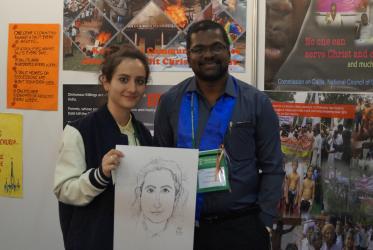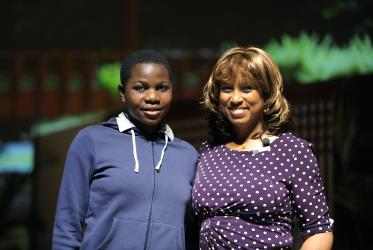Displaying 1 - 17 of 17
#WCC70: A prayer about health and healing
20 July 2018
G7 must address famine
22 May 2017
WCC Executive Committee speaks out on migrant crises
12 June 2015
Assembly renews churches’ commitment towards justice and peace
08 November 2013
“No one can serve Christ and caste!”
07 November 2013
Issues of justice in focus at WCC Busan assembly
06 November 2013
A church that listens fosters healthy communities
15 March 2013











